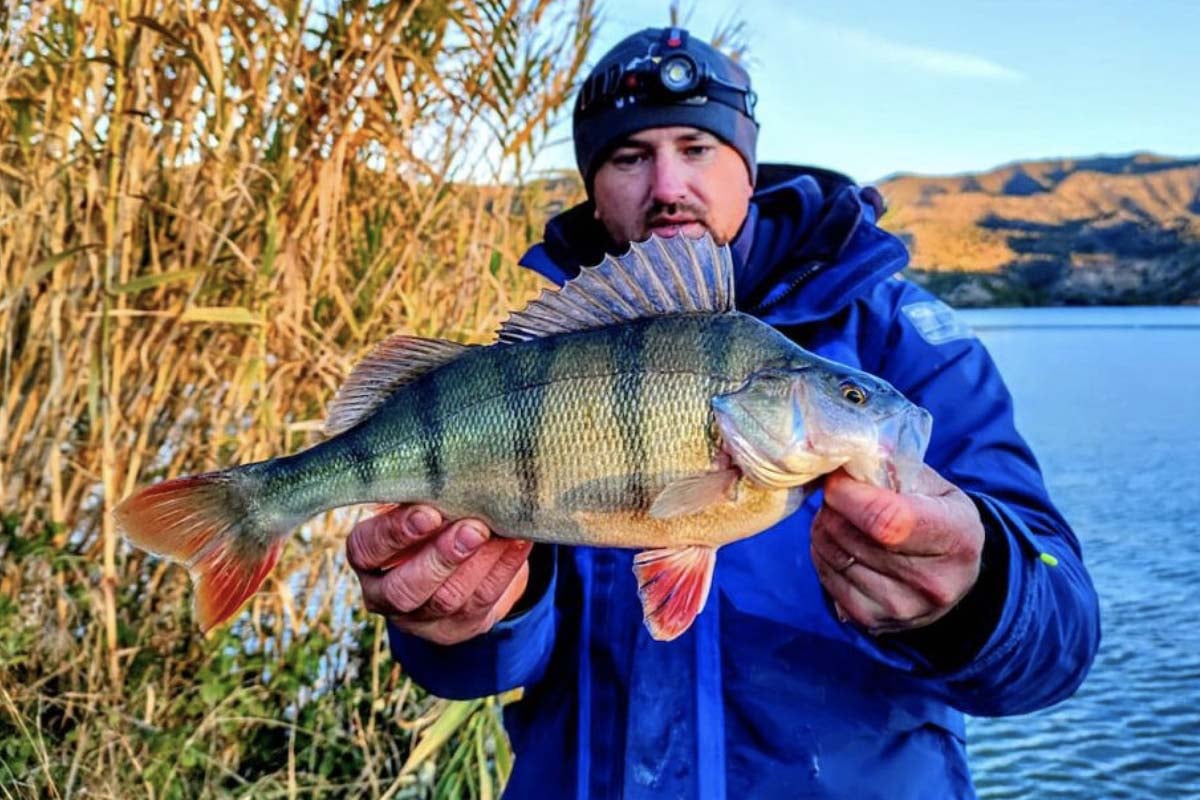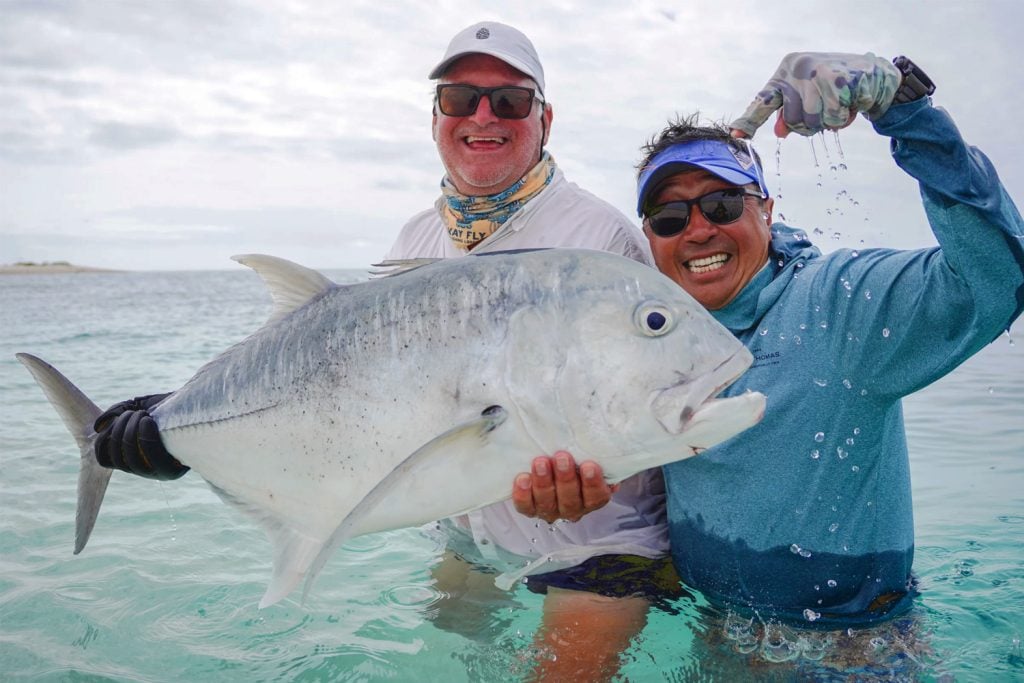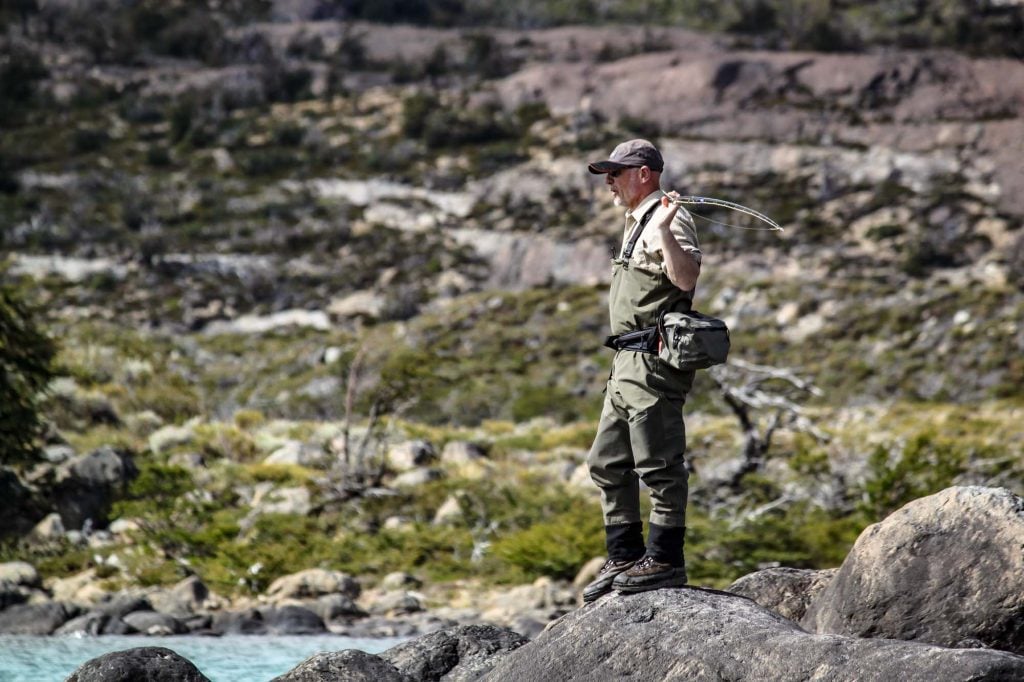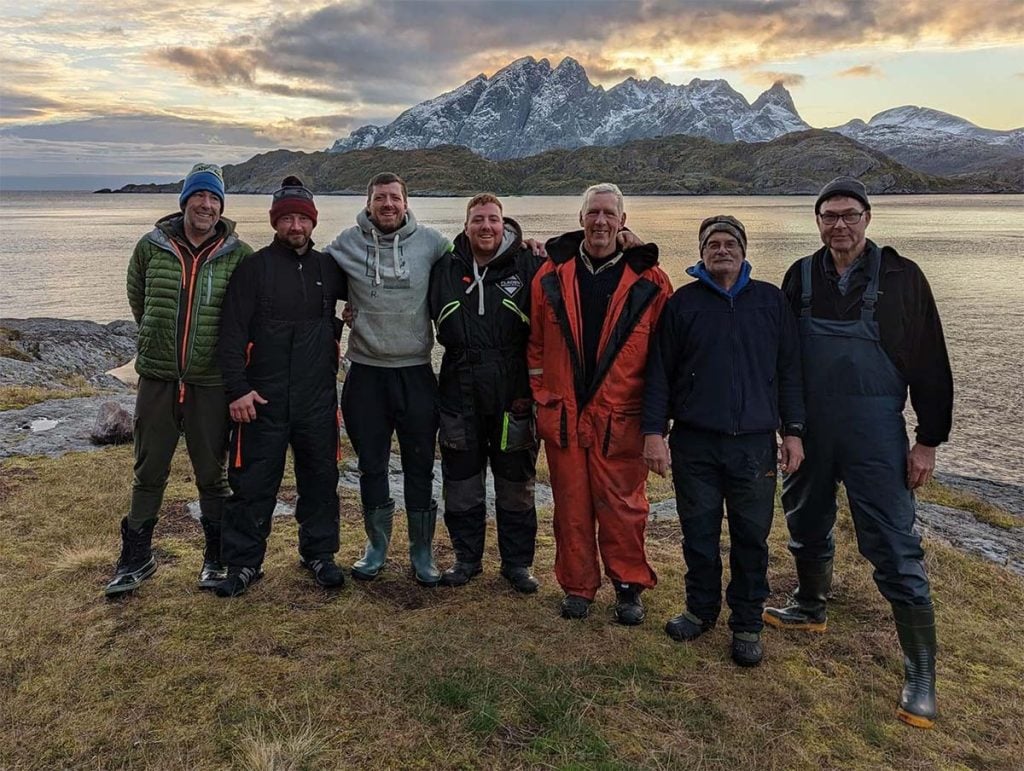Species: Perch
Scientific Name: Perca fluviatilis
Also known as: Common Perch, Redfin Perch, Euro Perch, Eurasian Perch and Eurasian River Perch.
The Perch is a species of fish native to Europe and widely distributed worldwide into countries like Australia, New Zealand and even South Africa, to mention just a few, where it’s more commonly referred to as the ‘Redfin Perch’ or ‘Euro Perch’. They feature a greenish colouration with red pelvic and caudal fins and between five and eight distinctive black bars running down their flanks. These, along with their spikey dorsal fin, make them easily recognisable; as they get bigger, they also develop a hump between their head and dorsal fin.
They have been known to live for over twenty years and reach spawning maturity between one and four years old, depending on their sex.
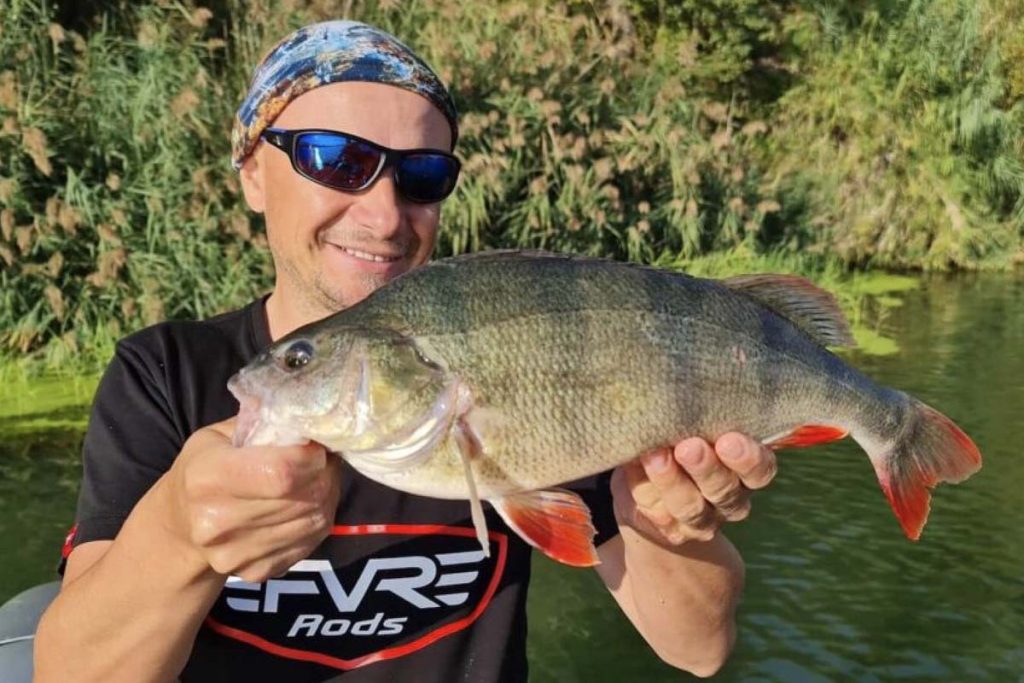

Perch are a popular freshwater fish, widespread throughout Europe.
Where To Catch Perch
Perch live and can be found in an array of freshwater environments, although they are also common in the brackish waters of the baltic sea. Generally, they prefer clear shallow lakes and slower-flowing rivers, especially those with deep light penetration and clear water.
For anglers wishing to target and catch one, the majority of the countries in Europe will offer a great chance; however, a famous destination we offer and one which will provide you with a great opportunity of a specimen is the River Ebro Villa in Spain. Here the Perch get found in good numbers, and big fish over 3lb are possible.
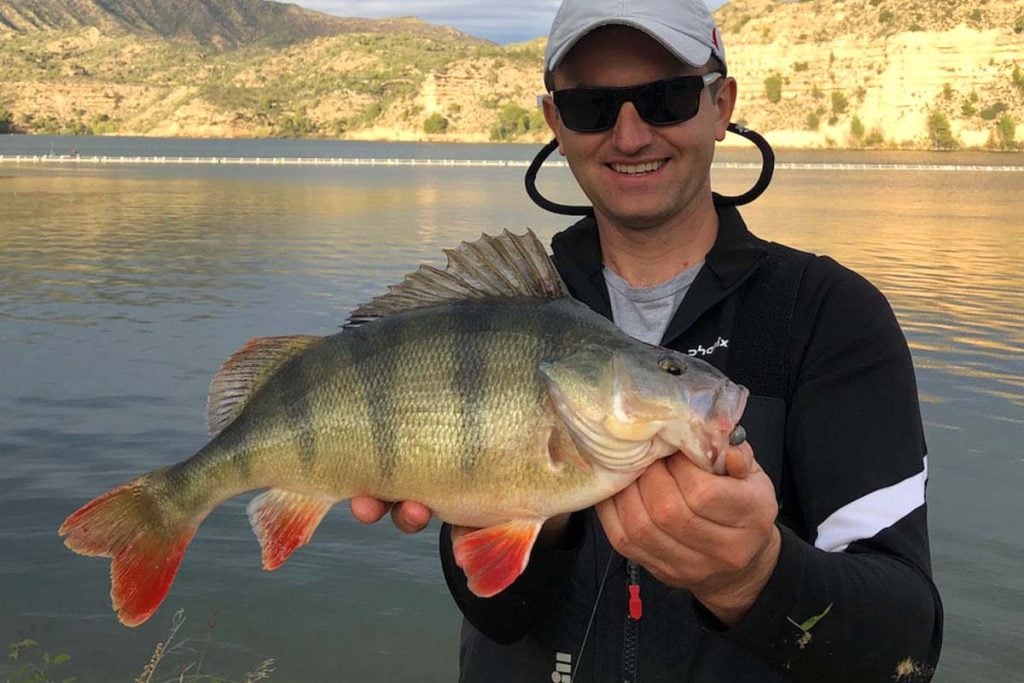

Average Size Of Perch
Perch can grow to over 8lb, and the largest fish ever recorded on rod and line was an absolute giant of 8lb 4oz landed in 2010 from the River Meuse in the Netherlands. However, typically they average between 0.5lb and 2lb, with a fish exceeding 2lb classed as a specimen. The official IGFA all-tackle world record currently stands at 6lb 6oz, with the fish landed from a Finnish River in June 2010.
As juveniles, they feed on plankton and bottom-dwelling invertebrates, but as they grow, they become more and more predatory, feeding on a diet of fish, like Sticklebacks, Minnows and small Roach. It’s also not unusual for them to turn cannibalistic, feeding on their own young.
They’re considered a valuable food fish, not in the UK but across Europe.
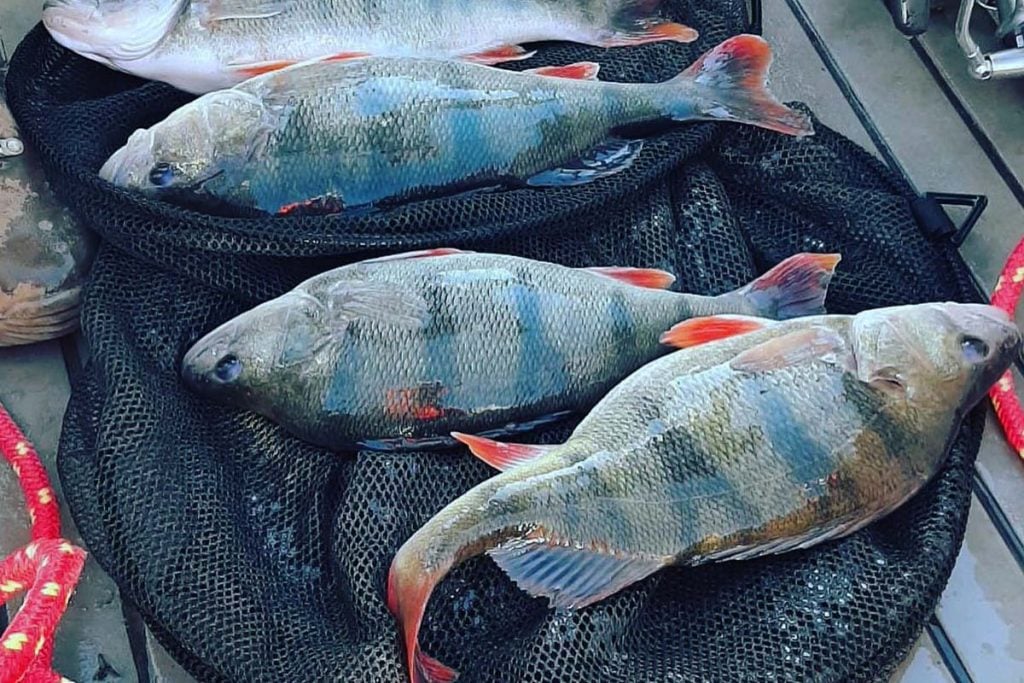

How To Catch Perch
If Perch are present in a waterway, they can be relatively easy to catch and can be highly aggressive feeders when hungry.
The most popular methods anglers use to catch them are fishing with small live baits mid-water, ledgering baits such as worms or grubs on the bottom, or artificial lures. Naturally, the tackle needs to be balanced, but as they don’t traditionally grow to epic proportions and are not overly known for their explosive fighting capabilities, medium-to-light lure outfits and softer ‘avon style’ bait rods usually suffice. As they don’t have teeth, a wire trace isn’t necessary, the same way it is when fishing for other predators like Pike and Zander.
At most of our destinations worldwide, they mainly get caught on small rubber lures, worked slowly and fished close to the bottom. A top tip is to fish in low light conditions, and often the best fishing will occur around dusk and into darkness when they can easily hunt their prey.
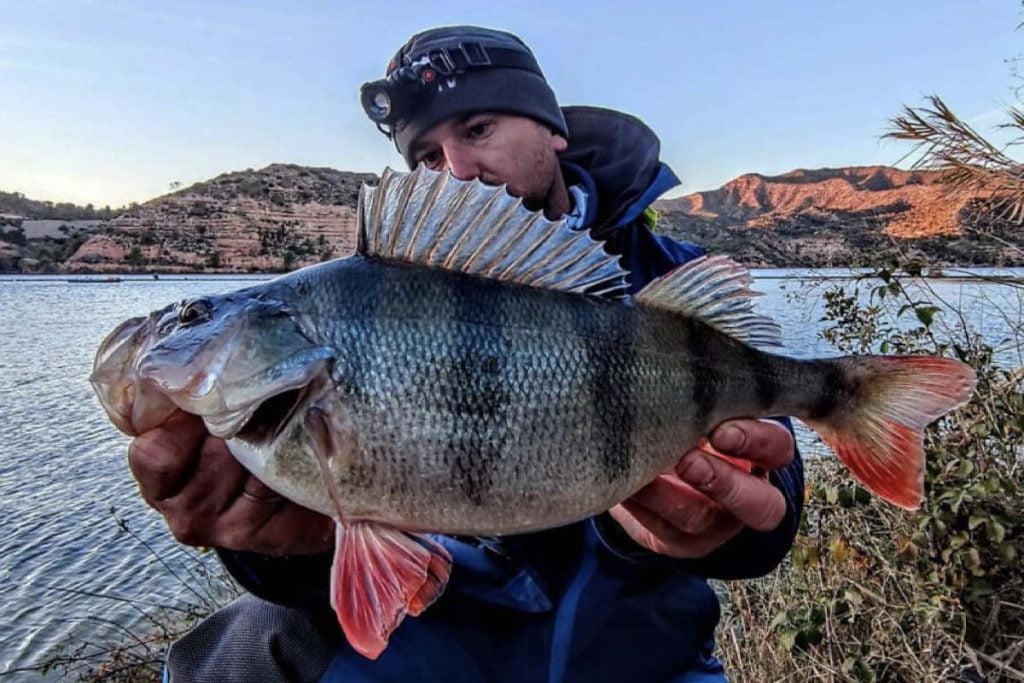

Contact US
If you’ve always wanted to catch a big Perch, then our Ebro Villa destination in Spain on the River Ebro would be perfect for you. If you’d like to learn more or enquire about a trip to this wonderful part of the world, contact Paul Stevens on 01603 407596 or via email at paul@sportquestholidays.com.
